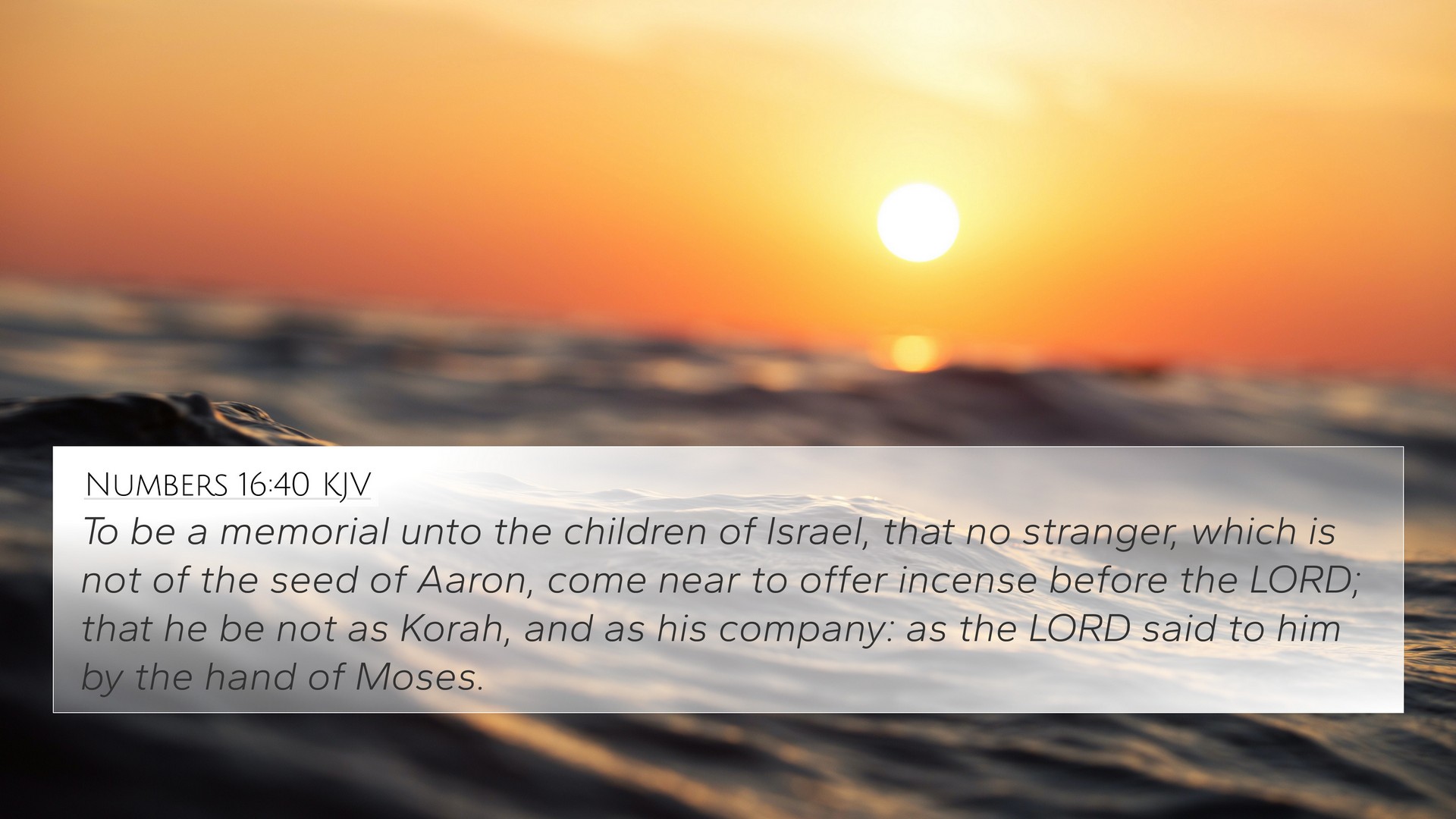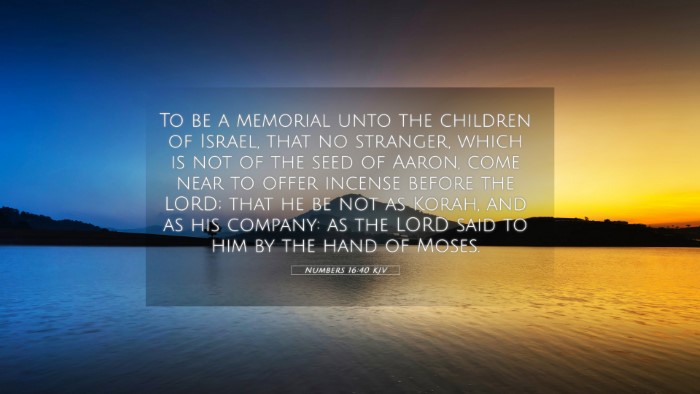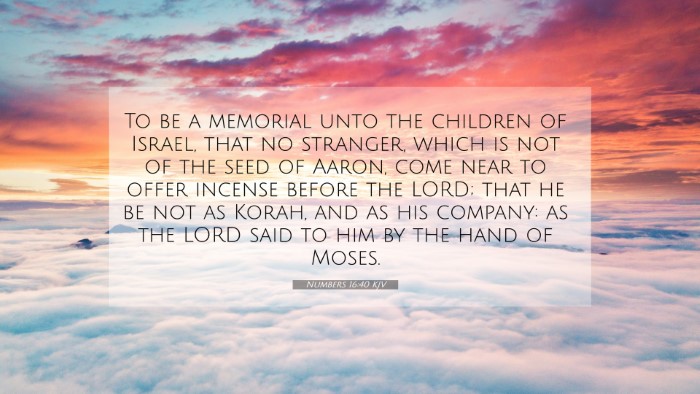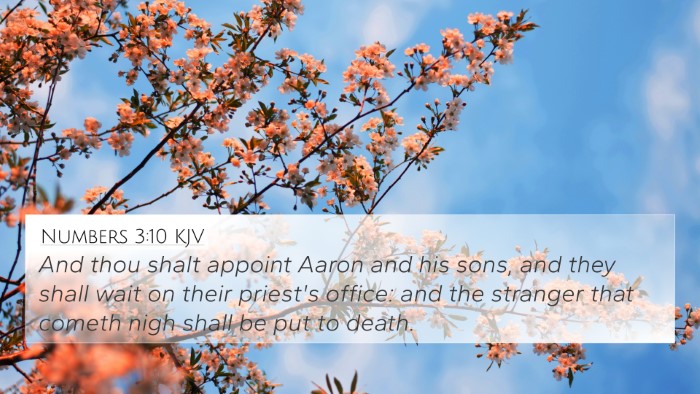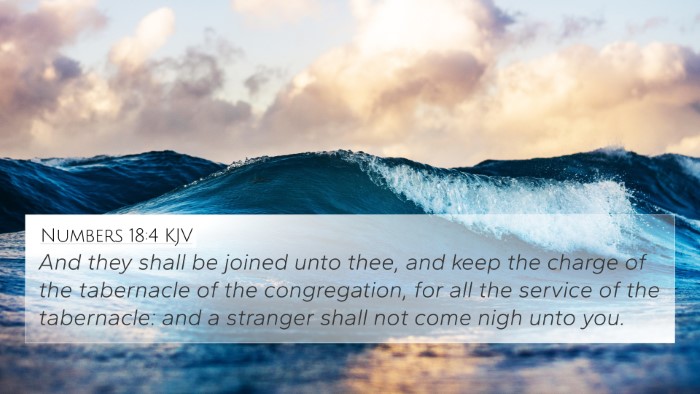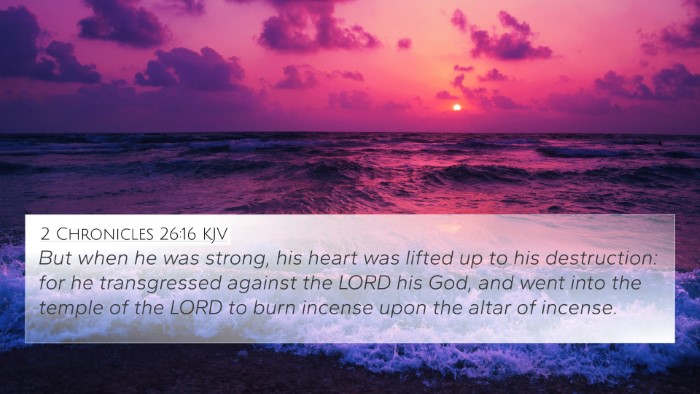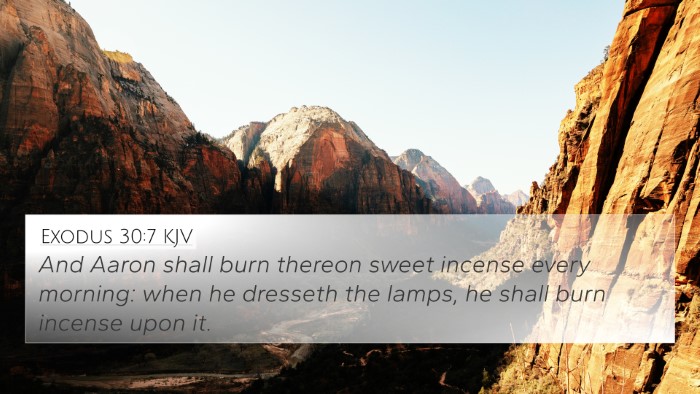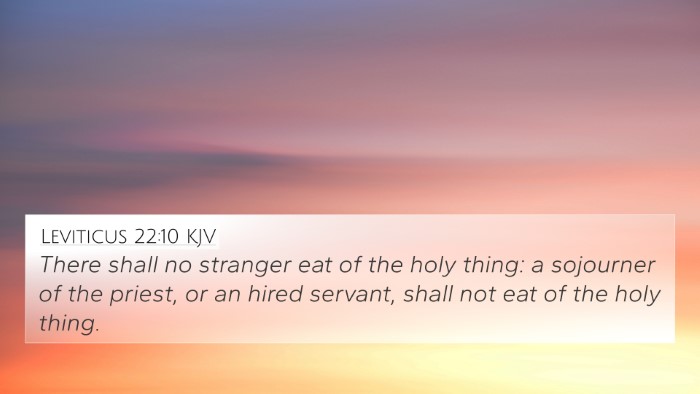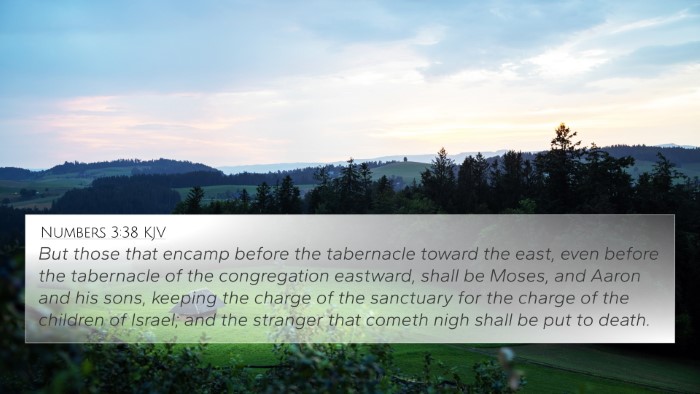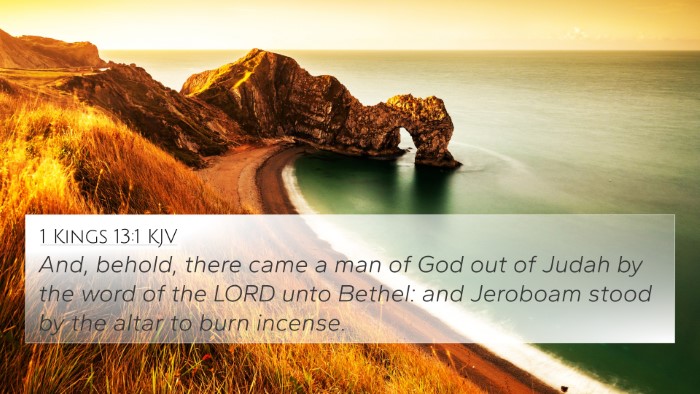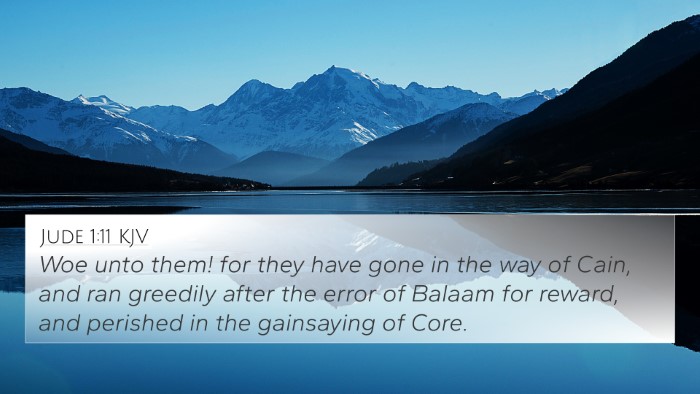Understanding Numbers 16:40
This Bible verse reads: "To be a reminder to the children of Israel, that no stranger, who is not of the seed of Aaron, shall come near to offer incense before the Lord; that he be not as Korah, and as his company: as the Lord said to him by the hand of Moses."
In this context, Numbers 16:40 serves as a pivotal verse in the narrative of Korah's rebellion, emphasizing the sanctity of divine order established by God regarding worship and priesthood. Various public domain commentaries provide rich insights into its significance:
Analysis of the Verse
-
Matthew Henry's Commentary:
Henry notes that this verse teaches the importance of obedience to God's appointed leadership. By highlighting that no 'stranger' should approach to offer incense, it underscores the principle of divine selection in spiritual matters, as exemplified by Aaron's lineage. This reflects on the broader theme of holiness and divine judgment against disobedience, illustrated by the fate of Korah and his followers.
-
Albert Barnes' Notes:
Barnes elaborates on the symbolism of the incense, interpreting it as a representation of prayer and worship. He connects the prohibition against non-Aaronic priests to the necessity of this worship being conducted in accordance with God's specific commands, further emphasizing that deviation from divine instructions can lead to dire consequences.
-
Adam Clarke's Commentary:
Clarke highlights the cultural context of priestly roles and the operations of worship in ancient Israel. He stresses that this verse serves as a warning that God’s laws regarding ceremonial practices must not be taken lightly, advocating for a strict adherence to God's appointed system, thus linking it to the larger themes of authority and divine order.
Key Themes and Connections
Numbers 16:40 encapsulates several critical themes prevalent throughout the Bible, including:
- Divine Authority: This verse reiterates God’s sovereignty in designating roles for worship, resonating with its roots back to Leviticus and the establishment of the priesthood.
- Consequences of Rebellion: The warning against Korah's fate serves as a reminder of the consequences that arise from rebellion against God's ordained structure.
- Role of Intercession: The incense represents prayer, linking this verse with the concept of intercession found in many biblical texts.
Connections Between Bible Verses
To deepen the understanding of this verse, here are some cross-references that illuminate its themes:
- Exodus 30:9: Discusses the prohibition of offering strange incense, reinforcing the holiness of the prescribed methods of worship.
- Leviticus 10:1-3: The punishment of Nadab and Abihu draws a parallel to God's serious view on unauthorized worship practices.
- Hebrews 5:4: Highlights that no one takes this honor upon themselves, illustrating the New Testament articulation of priestly roles.
- Numbers 17:5: The healing of divisions through the rod of Aaron echoes the themes of divine selection and authority.
- 1 Peter 2:9: Affirmation of believers being a royal priesthood echoes the legacy of the priesthood established in the Old Testament.
- Malachi 1:14: A warning against offering blemished sacrifices reinforces the standards of reverence God desires.
- Acts 1:24-26: Discusses the selection of Mathias, illustrating the concept of divine selection in leadership.
Thematic Bible Verse Connections
The themes in Numbers 16:40 can be systematically studied through various methods:
- Bible Concordance: Tools for cross-referencing such texts will highlight similar messages or divine instructions found throughout Scripture.
- Bible Chain References: By grouping scriptures that discuss divine authority and priesthood, one can trace a thematic lineage through both the Old and New Testaments.
- Cross-References for Sermon Preparation: Those preparing sermons on authority in worship can find ample biblical evidence through these connections to support their messages.
- Comparative Study of Pauline Epistles: Paul’s letters often reinforce Old Testament principles that echo the themes found in Numbers 16:40.
Understanding through Inter-Biblical Dialogue
Numbers 16:40 invites deeper exploration into how various scriptures converse with each other across the Testaments:
- Identifying Connections: Noting how Old Testament principles adapt in New Testament theology, especially concerning worship and priesthood.
- Detailed Cross-Reference Analysis: Exploring themes of reverence and God's authority in various contexts throughout the biblical narrative.
- Linking Prophets and Apostolic Teachings: Understanding how echoing themes of priestly roles come together to form a cohesive understanding in understanding God's intention for worship.
Conclusion
Numbers 16:40 serves not merely as a historical account of discipline among the Israelites, but as a profound reminder of the principles governing worship and authority. It invites readers to reflect on the importance of adhering to God's guidelines, encouraging a deeper understanding of divine order through cross-referencing related scriptures. By studying these connections, one can appreciate the cohesive narrative that the Bible presents in its treatment of worship, authority, and the consequences of transgressing God's ordained structure.
